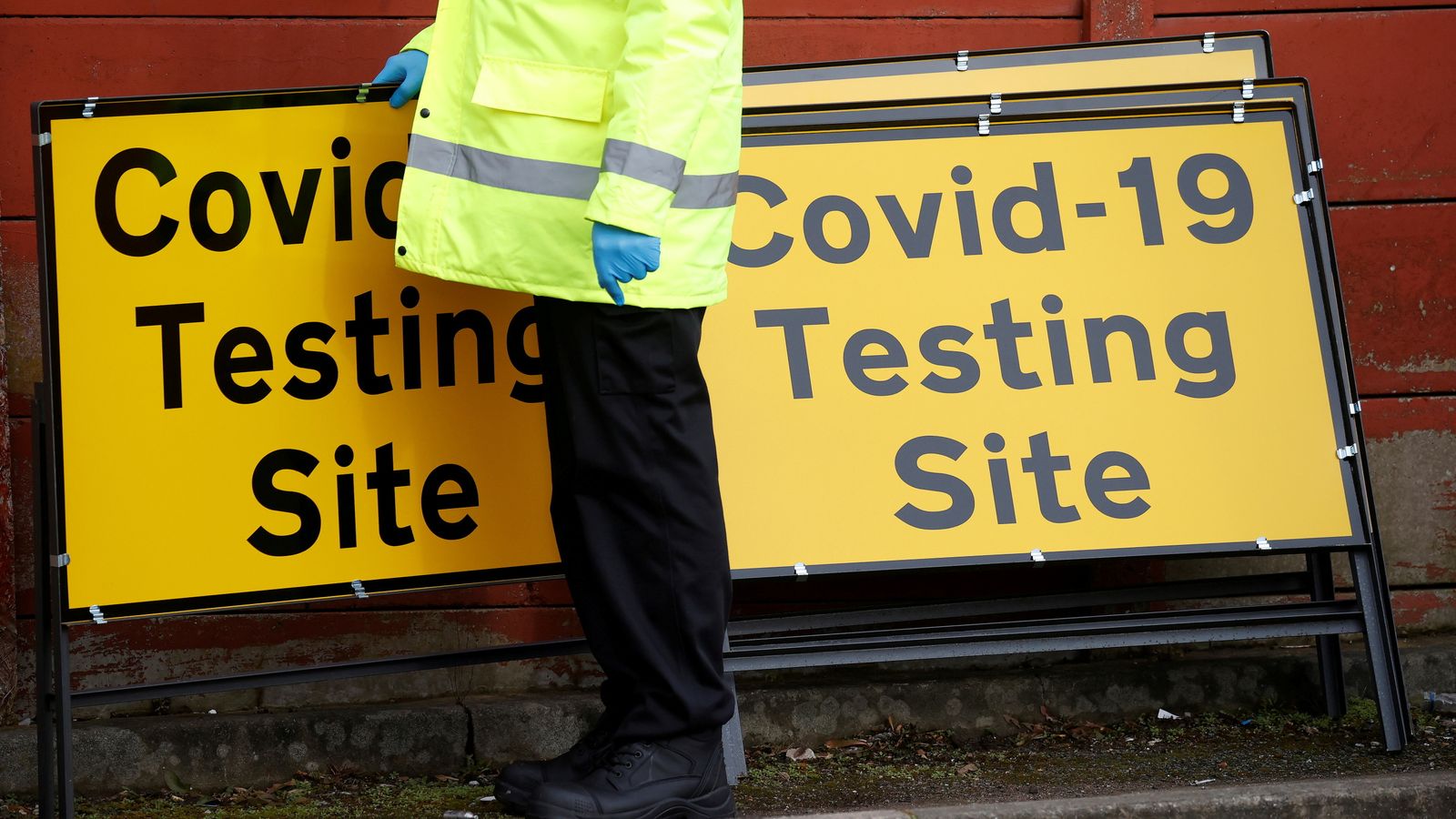The UK has recorded 167 more coronavirus-related deaths and 38,013 new COVID-19 infections in the latest 24-hour period, according to government data.
The figures compare with 191 fatalities and 38,975 infections reported yesterday, while 178 deaths and 38,154 cases were announced this time last week.
Since the pandemic began early last year, 133,841 people in the UK have died within 28 days of testing positive for COVID-19 and there have been 7,132,072 lab-confirmed infections.
Separate figures from the Office for National Statistics show there have been 158,000 deaths registered in the UK where COVID was mentioned on the death certificate.
Also, 25,131 people received their first dose of a coronavirus vaccine yesterday, bringing the total to 48,344,566 (88.9% of people aged 16 and over in the UK).
And 87,960 had their second jab on Wednesday, meaning 43,708,906 are now fully vaccinated (80.4%).
COVID vaccinations are estimated to have directly averted 112,300 deaths in England, according to new figures from Public Health England. Previous estimates had the number at 105,900 fatalities.
COVID-19: AstraZeneca and Pfizer vaccines safe to use as booster jabs, says UK medicines regulator
NHS waiting lists: Number of people waiting for hospital treatment in England hits record high again
COVID-19: Anti-vaccine posters found with razor blades attached to back of them to cut people as they are taken down, union says
It comes as care minister Helen Whately has suggested health and care workers who refuse to get vaccinated could be moved to back-office roles.
She said there were people who could not have the vaccine for medical reasons but those who decline the jab could lose their frontline jobs.
The government is carrying out a six-week consultation on plans to make COVID-19 and flu vaccinations mandatory for frontline health and care staff.
Some 92% of NHS staff have had their first dose of a coronavirus jab while 88% have had both doses.
Workers in registered care homes have already been told they will need to be double jabbed as a condition of deployment in England’s care homes by 11 November, unless they are exempt.
Meanwhile, case rates in England are rising in most age groups, apart from 20 to 29-year-olds, 60 to 69-year-olds and people aged 80 and over.
The highest rate is among 10 to 19-year-olds, with 681.4 cases per 100,000 people in the seven days to 5 September – a sharp rise from 478.3 a week earlier, according to Public Health England.
Follow the Daily podcast on Apple Podcasts, Google Podcasts, Spotify, Spreaker
The second highest rate is among 20 to 29-year-olds, down from 412.1 to 373.2.






















